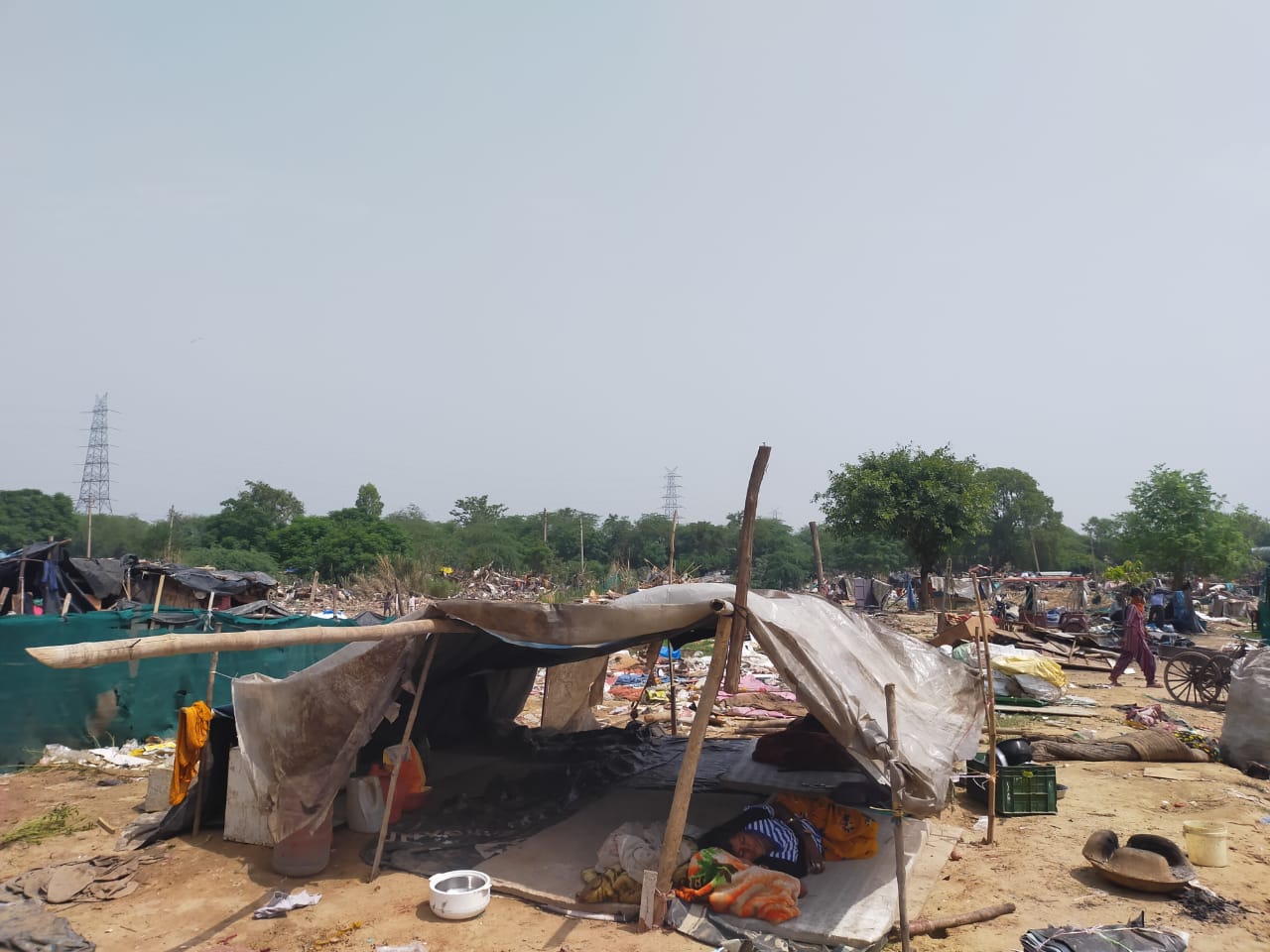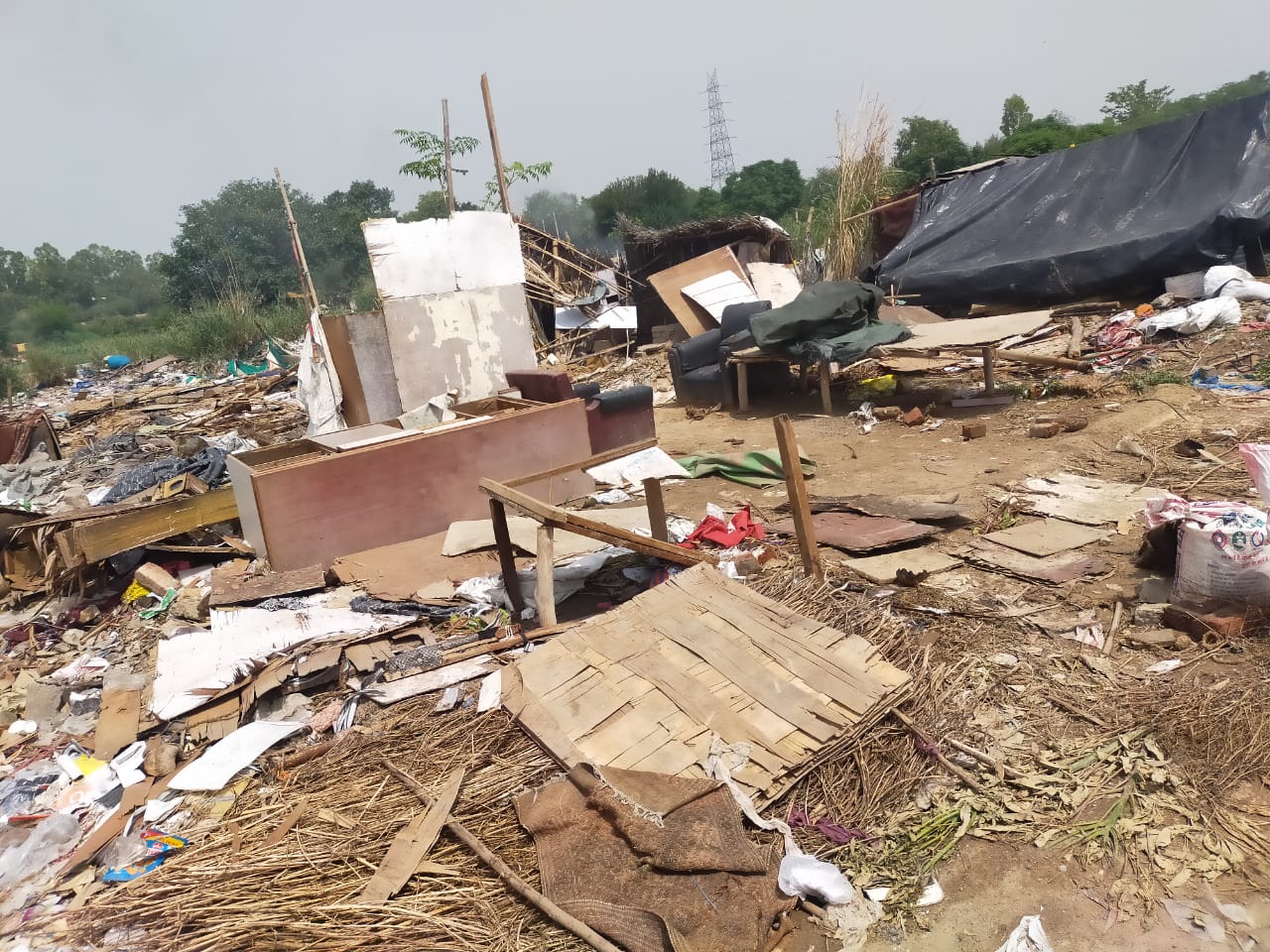Amid pandemic, rains, residents of Ramesh Park rendered homeless

Residents of Ramesh Park have been rendered homeless after a demolition drive by Delhi Development Authority (DDA). Most of the residents, who are either Muslim or Dalits, are rickshaw-pullers.
Suchitra | TwoCircles.net
NEW DELHI - Since July 2, hundreds of residents around Lalita Park and Ramesh Park in New Delhi have been evicted as the Delhi Development Authority (DDA) conducted an encroachment removal effort in the floodplains. Locals, on the other hand, claim they were not notified in advance and have not been provided rehabilitation.
Now, with monsoon pouring, their alternative shelters are drenched as well.
Danish, a 26-year-old man works as a worker in an electrical shop. He recently returned to Delhi after the second Covid-19 wave and managed to find a job again. He is scared of what to do now because he cannot move away to a new location, where it will be difficult to commute to work. “I cannot pay for a new house. I just found a new job. They are building some kind of a park or a lake. Maybe our jhuggis aren’t good to look at,” he says.
Most residents are Muslims and Dalits and are engaged in daily wage labour.
Mohammed Ehsaan, a 32-year-old man, lives in Ramesh Park with his family of 9 members. He is a daily wage labourer, who previously worked as a rickshaw puller. He is one of the 2 earners in the family. There was no notice given to them. “We don’t know what to do. It is constantly raining and the children in our family are suffering. We have nowhere to go. Our houses are gone. They are continuing to demolish what’s left,” he said.
Rafiq is the Pradhan of the basti. From June 29 to July 2, the bastis of Ramesh Park and Lalita Park were demolished by DDA. Over 500 families are now sleeping under the open sky with incessant rains. “We are mostly rickshaw-pullers and daily wage labourers, the women are mostly domestic workers. Many have lived here for even 30-35 years. We have voted for so many governments, and none of them has helped us till now," Rafiq said.
[caption id="attachment_443276" align="aligncenter" width="1280"] Destroyed jhuggis at Ramesh Park in New Delhi | Photo by arrangement[/caption]
Destroyed jhuggis at Ramesh Park in New Delhi | Photo by arrangement[/caption]
Dev Pal, a field researcher at Housing and Land Rights Network, told TwoCircles.net the demolition is happening to construct a lake, and they have filed a petition to stay the demolition and provide rehabilitation. “We got to know that there is a lake being constructed in this area, which is why these people are being removed.”
This is not the first time a slum settlement on the banks of the river Yamuna has been threatened. Many environmental cases have clashed with slum-dwellers interests, calling them encroachers and robbing them of their housing rights.
Last year, in a similar environmental plea, Supreme Court directed the Railway ministry to remove 48,000 slums in India.
Pal comments, “This was done amid a pandemic, which is an infringement of fundamental rights. People have not been given any rehabilitation elsewhere. These are all rickshaw drivers and persons from the marginalised social classes. How will people cope in this situation?”
Those whose houses were demolished are now sleeping outside, exposed to the monsoon rains in Delhi. They have resorted to taking shelter under plastic covers. Many others are catching illnesses as a result of a lack of food or getting wet in the rain.
“We are left to starve. I spent the entire night standing beneath a shed while it poured. I had no choice except to bring my entire family to a house I work at for shelter. I have a high fever, my children haven't eaten, and we have nowhere to go,” Meena, a slum-dweller, who lost her house said.
